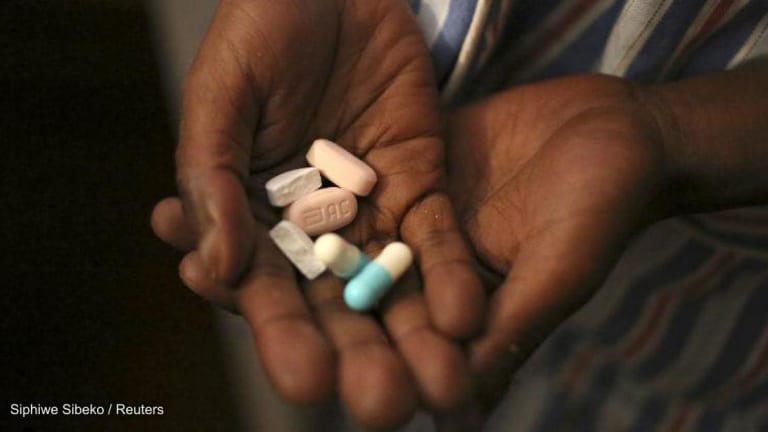The World Health Organisation (WHO) is the United Nations’ (UN) leading agency on international health issues. Anarfi Asamoa-Baah is the organization’s Assistant Director-General for HIV/AIDS, tuberculosis and malaria.
The treatment and prevention of HIV/AIDS, tuberculosis and malaria form part of the UN Millennium Development Goals (MDGs). The WHO’s work in this area deals not only with the medical side of disease treatment, but also with social, economic, and cultural aspects. Anarfi elaborated, “SARS did not kill that many people compared to how many people die from malaria and HIV, but it created a lot of panic because nobody knew where it was going to end and what was going to happen.” In Africa, the fallout of the HIV/AIDS epidemic is having severe social repercussions and is damaging many countries’ economic development. “They are not producing enough children who are active and intellectually bright to take some of those development challenges forward.” Anarfi explained, “The future of most (underdeveloped) countries is in jeopardy because the children are either born unhealthy or die very young.”
This week, Anarfi has been in attendance at the 2006 International AIDS Conference in Canada, where he launched the WHO’s latest strategy for HIV/AIDS treatment. “WHO has a unique role to play in helping countries mount an effective, comprehensive and sustainable response to the AIDS epidemic. The shortage of health workers is devastating public health systems, particularly in the developing world, and it is one of the most significant challenges we face in preventing and treating HIV. WHO is launching ‘Treat, Train, Retain’ to confront this crisis”, he said.
Anarfi, started working for the WHO in 1998 as senior policy advisor to the Director-General. Before his current appointment he served as Executive Director for External Relations and Governing Bodies, Executive Director for Health Technology and Pharmaceuticals, and Assistant Director-General for Communicable Diseases. Anarfi was formerly Director of Medical Services in the Ministry of Health in his native Ghana. After training and working there as a doctor, he left the country in the late-1980s for further studies in Britain and the USA, where he obtained postgraduate qualifications in community health, health planning, health economics and health policy analysis. He has also taught at the Liverpool School of Tropical Medicine in the UK, and part-time at the Ghana Medical School and the School of Public Health.
In May this year the WHO launched new international health regulations, which will guide the organization in its mission to, ‘prevent, protect against, control and provide a public health response to the international spread of disease’. The future work of Anarfi will focus on enhancing the effectiveness of their response. “With this framework, we can now support the work of countries in controlling outbreaks more effectively. The regulations provide WHO with new, clearly defined roles and responsibilities as we help countries to respond to disease outbreaks.” he said.




